| Listing 1 - 10 of 14 | << page >> |
Sort by
|
Book
ISSN: 13582461 ISBN: 9780521735445 0521735440 Year: 2008 Volume: 63 Publisher: Cambridge Cambridge university press
Abstract | Keywords | Export | Availability | Bookmark
 Loading...
Loading...Choose an application
- Reference Manager
- EndNote
- RefWorks (Direct export to RefWorks)
Philosophy of science --- Kant, Immanuel --- Metaphysics --- Philosophy --- God --- Ontology --- Philosophy of mind
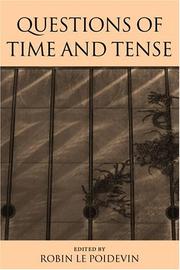
ISBN: 0199250464 9780199250462 Year: 2002 Publisher: Oxford : Clarendon press,
Abstract | Keywords | Export | Availability | Bookmark
 Loading...
Loading...Choose an application
- Reference Manager
- EndNote
- RefWorks (Direct export to RefWorks)
Book
ISBN: 9780199575268 0199575266 Year: 2010 Publisher: Oxford Oxford university press
Abstract | Keywords | Export | Availability | Bookmark
 Loading...
Loading...Choose an application
- Reference Manager
- EndNote
- RefWorks (Direct export to RefWorks)
Agnosticism. --- Agnosticisme --- Agnosticism --- Atheism --- Belief and doubt --- Faith --- Free thought --- Skepticism
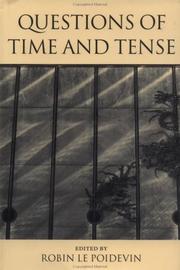
ISBN: 0198236956 Year: 1998 Publisher: Oxford Clarendon
Abstract | Keywords | Export | Availability | Bookmark
 Loading...
Loading...Choose an application
- Reference Manager
- EndNote
- RefWorks (Direct export to RefWorks)
Time --- Hours (Time) --- Metaphysics --- Philosophy of nature --- Geodetic astronomy --- Nautical astronomy --- Horology
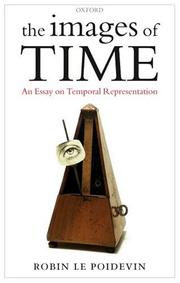
ISBN: 9780199265893 Year: 2007 Publisher: Oxford Oxford university press
Abstract | Keywords | Export | Availability | Bookmark
 Loading...
Loading...Choose an application
- Reference Manager
- EndNote
- RefWorks (Direct export to RefWorks)
Time --- Hours (Time) --- Geodetic astronomy --- Nautical astronomy --- Horology --- Philosophy of nature
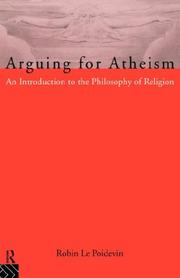
ISBN: 1134871112 1134871120 1280066733 0203304659 0203422066 9780203422069 9780415093378 0415093376 9780415093385 0415093384 0203730305 9780203730300 6610066736 9786610066735 9781134871124 9781280066733 9780203304655 0415093376 0415093384 9781134871070 9781134871117 Year: 1996 Publisher: London Routledge
Abstract | Keywords | Export | Availability | Bookmark
 Loading...
Loading...Choose an application
- Reference Manager
- EndNote
- RefWorks (Direct export to RefWorks)
First Published in 2004. Routledge is an imprint of Taylor & Francis, an informa company.
Religion --- Atheism. --- Philosophy --- Agnosticism --- Free thought --- Irreligion --- Secularism --- Theism --- Philosophy. --- Atheism --- Religious studies
Book
ISBN: 1108558194 1108587933 1108616828 1108457479 Year: 2019 Publisher: Cambridge : Cambridge University Press,
Abstract | Keywords | Export | Availability | Bookmark
 Loading...
Loading...Choose an application
- Reference Manager
- EndNote
- RefWorks (Direct export to RefWorks)
This Element is an introduction to contemporary religious fictionalism, its motivation and challenges. Among the issues raised are: can religion be viewed as a game of make-believe? In what ways does religious fictionalism parallel positions often labelled 'fictionalist' in ethics and metaphysics? Does religious fictionalism represent an advance over its rivals? Can fictionalism provide an adequate understanding of the characteristic features of the religious life, such as worship, prayer, moral commitment? Does fictionalism face its own version of the problem of evil? Is realism about theistic (God-centred) language less religiously serious than fictionalism?
Religion --- Fictions, Theory of. --- Knowledge, Theory of --- Reality --- Truth --- Philosophy . --- Philosophy.
Book
Year: 2008 Publisher: Cambridge: Cambridge university press,
Abstract | Keywords | Export | Availability | Bookmark
 Loading...
Loading...Choose an application
- Reference Manager
- EndNote
- RefWorks (Direct export to RefWorks)
Book
ISBN: 9780199676576 0199676577 Year: 2023 Publisher: Oxford Oxford University Press
Abstract | Keywords | Export | Availability | Bookmark
 Loading...
Loading...Choose an application
- Reference Manager
- EndNote
- RefWorks (Direct export to RefWorks)
"The doctrine of the incarnation - that God became human in Christ - is one of the most astonishing propositions ever advanced, and it is at the heart of the Christian faith. It is also a paradoxical one, in that it immediately faces the objection that, since the properties of humanity and divinity are incompatible, nothing can be both divine and human. Can the doctrine be defended against the charge of incoherence? This is the central question of this book. It is a question which has received intense attention in recent philosophy of religion, but the distinctively novel features of this book are twofold. First, it brings a range of debates in contemporary metaphysics - in particular, debates over identity, persistence, composition, embodiment, essence, mind, space, time and necessity - to bear on the central question. Second, it defends a particularly wide-ranging version of the view of the incarnation known as the kenotic model, on which God the Son gave up, in an act of kenosis or self-emptying, certain divine characteristics in order to become human. There are certain properties traditionally ascribed to God, such as being independent of time, being disembodied, existing of necessity, and being the ground of goodness, which it apparently makes no sense to suppose could be given up: they are, it seems, held by God timelessly or eternally. This book proposes a development of the kenotic model in which kenosis could coherently be thought to apply even to these apparently unchangeable aspects of the divine"--
Incarnation --- Philosophy and religion --- Jesus Christ --- Jesus Christ --- Divinity --- Humanity
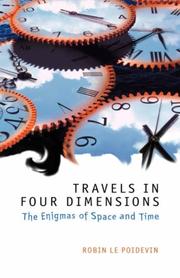
ISBN: 0198752547 Year: 2003 Publisher: Oxford Oxford university press
Abstract | Keywords | Export | Availability | Bookmark
 Loading...
Loading...Choose an application
- Reference Manager
- EndNote
- RefWorks (Direct export to RefWorks)
| Listing 1 - 10 of 14 | << page >> |
Sort by
|

 Search
Search Feedback
Feedback About UniCat
About UniCat  Help
Help News
News